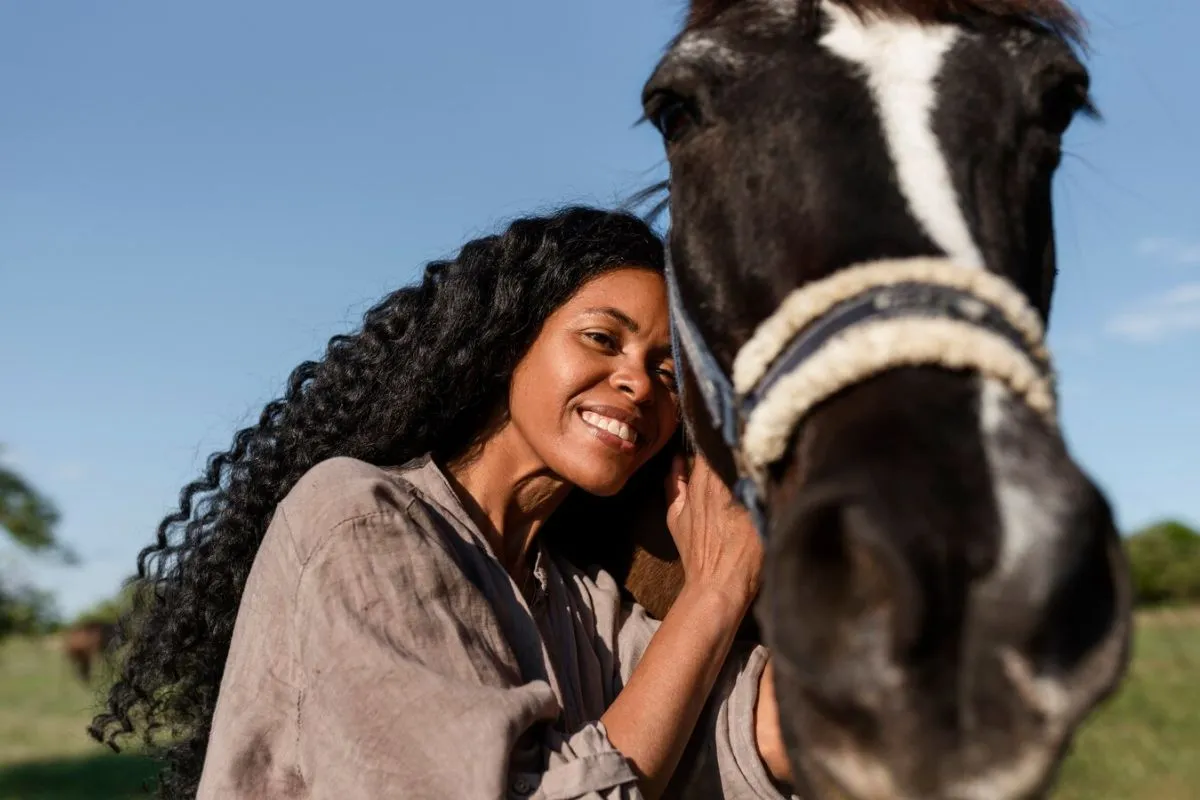Horses in Traditional Farming have been indispensable for centuries. They play a crucial role in sustainable agriculture, enhancing various farming practices.
These working animals have facilitated plowing and harvesting, reducing reliance on modern machinery. Emphasizing horses in traditional farming aids in soil conservation and organic farming.
With the rise of sustainable agriculture, the role of horses is being reconsidered. Their significance spans transportation, manpower, and eco-friendly practices.
The Role of Horses in Traditional Farming
Horses have historically been integral to traditional farming. They have provided the necessary power to carry out various tasks.
The primary roles included plowing fields, transporting goods, and aiding in harvesting. In the absence of modern tractors, horses were the backbone of agriculture.
They were particularly valuable in regions where mechanical equipment was unavailable or unaffordable. Their low cost compared to machines made them accessible to small farmers.
Plowing and Soil Preparation
One of the key tasks for horses in traditional farming is plowing. They help cut into the soil, preparing it for sowing seeds.
Plowing with horses promotes soil aeration and integrates organic matter. This is essential for sustainable agriculture as it maintains soil health.
Furthermore, horses cause less soil compaction than heavy machinery. This minimizes erosion and degradation of fertile land.
Harvesting and Transportation
Horses have also played a pivotal role in harvesting crops. They were used to pull harvesters and transport goods to storage.
Their ability to navigate difficult terrains with ease makes them invaluable. In many traditional farming practices, horses continue to be utilized for this purpose.
For small-scale farmers, using horses for transportation is cost-effective. It reduces dependence on fossil fuels, aligning with sustainable agriculture principles.
Manpower and Efficiency
The manpower provided by horses in traditional farming cannot be overstated. They reduce the need for human labor in arduous tasks.
This enhances efficiency, allowing farmers to cover more ground. The capacity of horses to endure long hours of work is beneficial.
Their resilience and strength make them reliable partners in farming efforts. In doing so, they contribute significantly to the productivity of traditional farming.
Sustainable Practices Enhanced by Horses
Integrating horses into traditional farming supports sustainable agriculture. Their use is aligned with practices that promote environmental health.
Organic farming receives a significant boost from using horses. They negate the need for chemical inputs and fossil fuels.
Moreover, horses contribute to soil conservation. Their lighter footprint preserves soil structure and fertility.
Organic Farming Benefits
Horses naturally complement organic farming practices. They enable farming without synthetic fertilizers and pesticides.
By using horses, farmers can avoid soil contamination. This ensures that crops are healthier and safer for consumption.
Furthermore, horses contribute to maintaining biodiversity. Their manure enriches the soil, promoting the growth of diverse plant species.
Soil Conservation and Health
Soil conservation is a critical aspect of sustainable agriculture. Horses help achieve this through their minimal soil impact.
Their hooves cause less compaction than tractor wheels. This prevents erosion and maintains soil structure.
Additionally, horses support soil health by incorporating organic matter. Their contributions include natural fertilization and aeration.
Less Reliance on Fossil Fuels
The use of horses significantly reduces fossil fuel consumption. Traditional farming with horses lessens the carbon footprint.
This aligns with the goals of sustainable agriculture. Reducing machinery reliance helps mitigate climate change.
By integrating horses, farmers also cut costs associated with fuel. This economical advantage is particularly beneficial for small-scale operations.
Challenges and Considerations
Despite the benefits, there are challenges in integrating horses. Modernization and mechanization often overshadow their use.
Training and maintaining horses require time and resources. Farmers need knowledge and skills to handle them effectively.
Furthermore, the initial investment can be high. However, long-term benefits often outweigh these challenges in sustainable farming.
Training and Care
Proper training is essential for the effective use of horses. Farmers must possess or acquire skills in animal husbandry.
This includes understanding their health, diet, and temperament. Ensuring the well-being of horses is crucial for their productivity.
Regular veterinary care and proper feeding are necessary. This ensures that the horses can perform tasks effectively without undue strain.
Initial Investment and Resources
While beneficial, starting with horses in farming can be costly. The initial purchase of horses and equipment is a significant investment.
However, these costs are often recouped through reduced machinery and fuel expenses. Long-term sustainability gains make horses a worthwhile consideration.
Additionally, there are alternative funding options. Grants and subsidies for sustainable farming can offset some initial costs.
Balancing Modernization and Tradition
Striking a balance between modern and traditional methods is crucial. Horses can complement machinery to enhance sustainability.
Modern tools can coexist with traditional practices. This hybrid approach optimizes both efficiency and eco-friendliness.
Farmers must evaluate their specific needs and capabilities. Integrating horses requires careful planning and strategic implementation.
The Future of Horses in Farming
As sustainable agriculture gains momentum, the role of horses is being re-evaluated. Their historical significance is paving the way for future applications. Farmers are recognizing the ecological and economical advantages of using horses.
Combining traditional farming practices with modern insights can revolutionize sustainable agriculture. This approach ensures environmental preservation while maintaining productivity.
Future farming trends will likely see increased integration of horses. Their contribution to sustainable agriculture remains invaluable.
Final Thoughts: Embracing Tradition for a Sustainable Future
In conclusion, horses in traditional farming significantly contribute to sustainable agriculture. Their roles in plowing, harvesting, and transportation are irreplaceable.
Embracing horses aligns with eco-friendly farming practices. They enhance soil conservation and reduce reliance on fossil fuels.
As we move towards a sustainable future, the integration of horses will be crucial. Farmers must strike a balance between tradition and modernity.
By understanding the benefits and challenges, we can harness the full potential of horses. Let’s embrace this valuable asset for a greener future.
Frequently Asked Questions
Why are horses valuable in traditional farming?
Horses provide essential power for plowing, harvesting, and transportation. They reduce reliance on machinery and promote sustainable practices.
How do horses contribute to soil conservation?
Horses cause less soil compaction than machinery. They help maintain soil structure and prevent erosion.
What are the challenges of using horses in farming?
Training and maintaining horses require time and resources. Initial investment costs can be high, but long-term benefits outweigh them.
Can horses coexist with modern farming techniques?
Yes, horses can complement modern tools. A hybrid approach optimizes efficiency and sustainability.
What is the future of horses in sustainable agriculture?
The future holds increased integration of horses. Their ecological and economical advantages make them invaluable.

